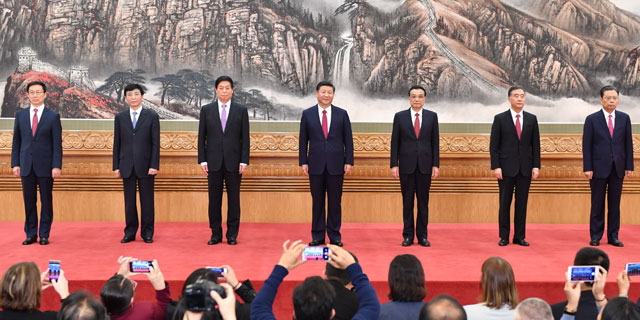German firms eye innovation
 |
|
A worker at the car production line of FAW-Volkswagen in Changchun, capital of Jilin province. [Photo by Zhu Wanchang/For China Daily] |
German manufacturing companies in China will shift from product to business model innovation in the next three years to sustain growth in the country, a new survey said.
Innovation in all its forms will, however, continue to be the key driver for business activities in China with Chinese companies leading the way, according to the Innovation Survey of the Greater Shanghai Region that was released on Wednesday.
For German companies, innovation was ranked among the top three priorities as it was necessary to meet customer needs, to differentiate from competitors, and to attract new customers.
Nearly 80 percent of the surveyed companies expect an increase in their innovation output over the period, but only 41 percent have a well-defined innovation strategy.
The survey was conducted earlier this year by the German Chamber of Commerce in China, Shanghai, in association with Tongji University and global market consultancy Goetzpartners.
The survey received 111 valid responses, most of which were from senior executives of German manufacturing companies in the Yangtze River Delta region. About two-thirds of these companies have been in China for 10 years and 50 percent of them had an annual turnover of 250 million yuan ($37.7 million) last year.
Lin Tao, a partner at Goetzpartners, said that Chinese companies had focused their efforts on business model innovation instead of competing on costs in recent years. The ongoing transformation has also impacted German companies in China, with up to 23 percent of the surveyed companies being involved in research and development activities in China that generates improved or new products for world markets. "We expect this trend to accelerate in the mid-term," he said.
To further drive innovation, nearly 50 percent of the polled companies said they would seek external tie-ups in the next three years, including working with startups and even competitors.
In terms of cooperation with Chinese companies, 45 percent of the respondents opted for acquisitions while the second best choice was investment in a Chinese company. Mergers seemed to a less preferred option for German companies due to the unwanted technology transfer and intellectual property protection concerns.
"Digitalization has pushed most of the German companies to their limits and hence they have to open up," said Lin.
Bettina Schoen, chairwoman of the board of the German Chamber of Commerce in China, Shanghai, feels that the Chinese authorities should promote a wide-ranging innovation eco-system that offers institutional and cultural support to foster a transparent and accessible innovation culture.
In addition, steps are also needed to enhance the educational efforts in schools with an added focus on vocational training to stimulate creativity and boost innovation capabilities.









